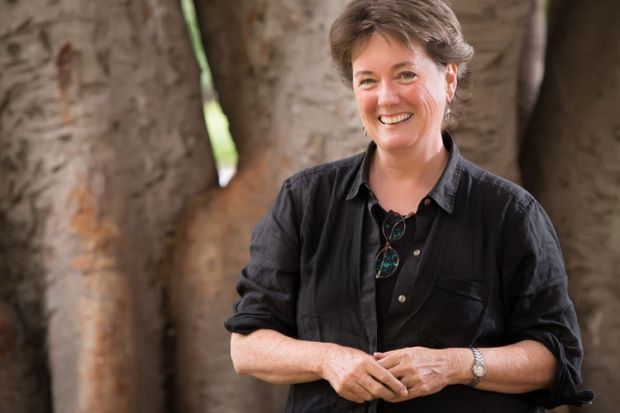Kate Auty is the former commissioner for environmental sustainability in the Australian state of Victoria. Among other roles she has held in her career, she was a solicitor for a major inquiry into Aboriginal deaths in custody held in the late 1980s and early 1990s. In April, she was named a vice-chancellor’s fellow at the University of Melbourne. The position provides a residency for distinguished public intellectuals to contribute to the public life of the university.
Where and when were you born?
Brisbane, Queensland, in 1955. We lived all over Queensland until I was about three, then moved to rural Victoria, and then Kimberley in Western Australia. There I did my first three years of school in a classroom with the children of scientists and Aboriginal traditional owners and pastoral workers. We also lived in Darwin for five years before Cyclone Tracy [in 1974], at a time when that city was the most multicultural melting pot in Australia.
How has this shaped you?
Transience and broad exposure to community has caused me to be open and to challenge and evaluate my surroundings. Aboriginal people have been a guide to me in all sorts of contexts.
After your time in politics, are you looking forward to working in a university?
The university provides a wonderful opportunity to take the time to set and adhere to my own agenda and to respond to issues in a thoughtful and purposeful way.
Is progressive environmental policy hampered by climate change deniers?
We need to respond [to them] but not get distracted. The work I did as commissioner took me all over Victoria, conferring with and listening to people in towns, cities and on the land. I was struck by the depth of concern about the changing climate, the extent of innovative action and the desire for accurate information. Deniers are laggards intellectually and practically.
What are the most pressing global environmental issues?
Sustainable development, climate change, water scarcity, the right of women and girls to education and opportunities, religious intolerance and environments that nurture cultural integrity.
What is the role of universities in promoting sustainability, in research and beyond?
We already see leading universities promoting environmental management…[and] this is being embedded in course delivery, as leading universities understand they have a responsibility to produce good environmental citizens. Student demand is driving this.
How do attitudes to the environment in Australia compare with those in the UK?
We have a poor environmental record that is not well understood even as we appear to value our unique biodiversity. However, there is a remarkable amount of community work being done to deal with biodiversity loss, climate change and other environmental pressures. These activities bind us together.
The ill-treatment of Australia’s Indigenous people has been well documented. What progress has been made to remove this injustice and what still needs to be done?
We still imprison Aboriginal people at a scandalous rate. Non-Indigenous people will find a role in remedying this and other problems only by actively collaborating for change, taking advice and surrendering “control”. We are not as good at this as we should be. We need to be reflective and to act together.
Tell us about someone you’ve always admired
Rochelle Patten, a senior Yorta Yorta woman. She was the first person to give me insights about being Aboriginal in closely occupied south-eastern Australia. We met in 1978 through her cousin Sandra Bailey, the first Aboriginal woman to study law at the University of Melbourne. Rochelle grew up as Australia actively promoted assimilation, she struggled with racism, she sought out educational opportunities while maintaining her cultural integrity, she has been generous in the face of adversity, and she has encouraged me to be a more thoughtful and attentive listener and observer.
What has changed most in Australian higher education in the past 10 years?
I am a child of the Whitlam education reforms of the 1970s [which introduced free, universal higher education]. As a young woman with a state school education, I gained a place at the University of Melbourne law school supported by a scholarship. Anecdotally, I hear that tuition fees can make it more challenging for people coming to university from that sort of background.
Melbourne is a leading national and global university. What are Australia’s strengths in global higher education?
We continue to find a place as educational innovators. I have been really struck by our commitment to e-research and distance learning generally. We are also very culturally open in the university sector, notwithstanding the perception of pressures to the contrary.
Register to continue
Why register?
- Registration is free and only takes a moment
- Once registered, you can read 3 articles a month
- Sign up for our newsletter
Subscribe
Or subscribe for unlimited access to:
- Unlimited access to news, views, insights & reviews
- Digital editions
- Digital access to THE’s university and college rankings analysis
Already registered or a current subscriber? Login

